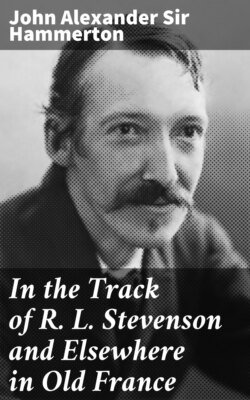Читать книгу In the Track of R. L. Stevenson and Elsewhere in Old France - John Alexander Sir Hammerton - Страница 20
XVI.
ОглавлениеAlas! at dawn next day we looked forth on a blank wall of mist backing the ruins across the road. Not a hill was visible. We sought our beds again, and by nine o'clock the outlook was only slightly improved, the nearest hills, now resonant with sheep-bells, being in sight. The engineer comforted us with the assurance that this was the common weather in June, the best time of the year being from July to October, but he thought the mists might clear before noon. Presently it began to rain, and during the whole day there was not half an hour of clear weather. At times the atmosphere would thin a little, only to show us heavy clouds condensing on the higher hills. Thus prisoned in our room, we contrived to be comfortable, and I believe that another day would have left us wondering why we had dreaded staying at the inn, so soon does the human mind adapt itself to circumstances. The rain-sodden streets actually provided entertainment. We watched with interest the coming and going of shepherds and their flocks, the former armed with commodious umbrellas and their sheep shorn in a way that left a lump of wool upon their backs making them comically like little camels. Many bullock wagons loaded with shale passed by, and we noticed that the slightest touch with the driver's wand served to direct the team, whose heads were, to quote our hero, "fixed to the yoke like those of caryatides below a ponderous cornice." Children played out and in the stables and among the ruins, and an old man, wearing the usual dress of the peasant, with pink socks showing above his sabots, his hands thrust deep in his pockets, and a stick under his arm, wandered aimlessly to and fro in the rain most of the day. The stage-coach from Villefort to Mende rested for a time at the inn, causing a flicker of excitement, and in the evening again the mine officials were there to bear us company.
The engineer proved himself a thorough-paced sceptic of the modern French sort. His opinion of the country-folk was low—hypocrites, fools, money-grubbers all! Holding up a five-franc piece, he averred that for this they would sell mother, daughter, sister; and then similarly elevating a bundle of paper-money, he exclaimed: "Voilà, le Grand Dieu."
"This is a Catholic countryside?" I said.
"Yes," he replied, "but that makes no difference."
"There is one Protestant in Bleymard," put in Barbenoire,—"myself!"
"And he isn't up to much," added the cynic.
